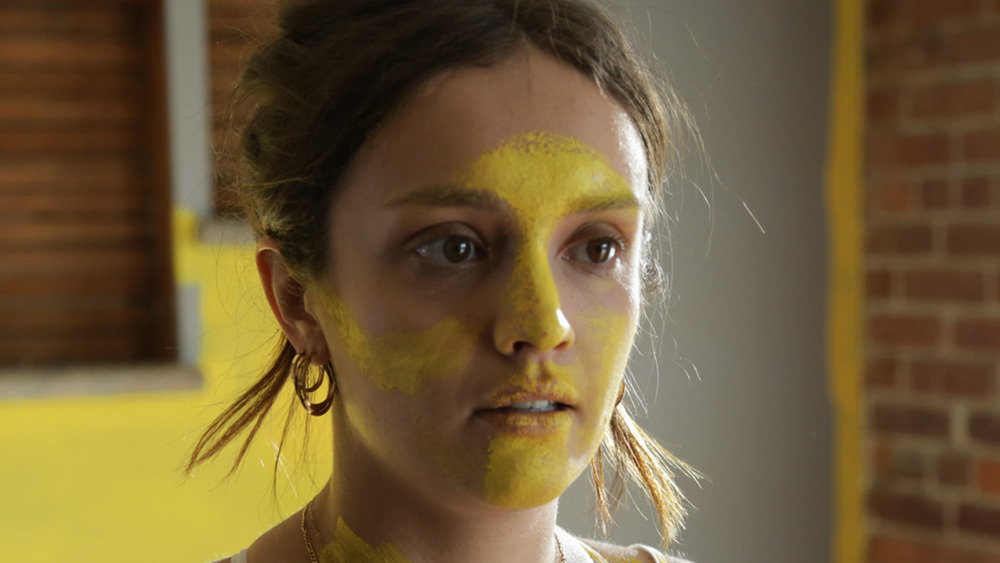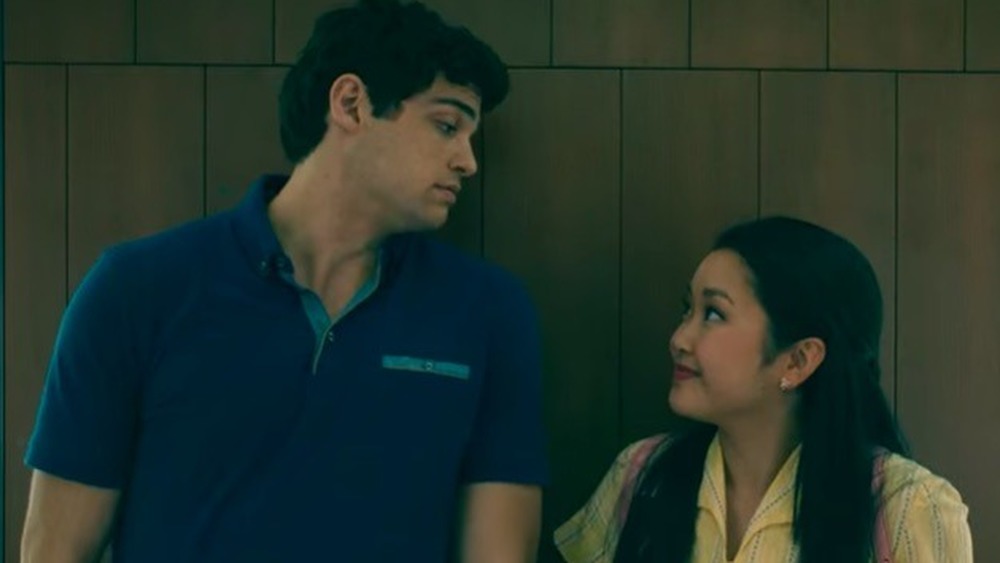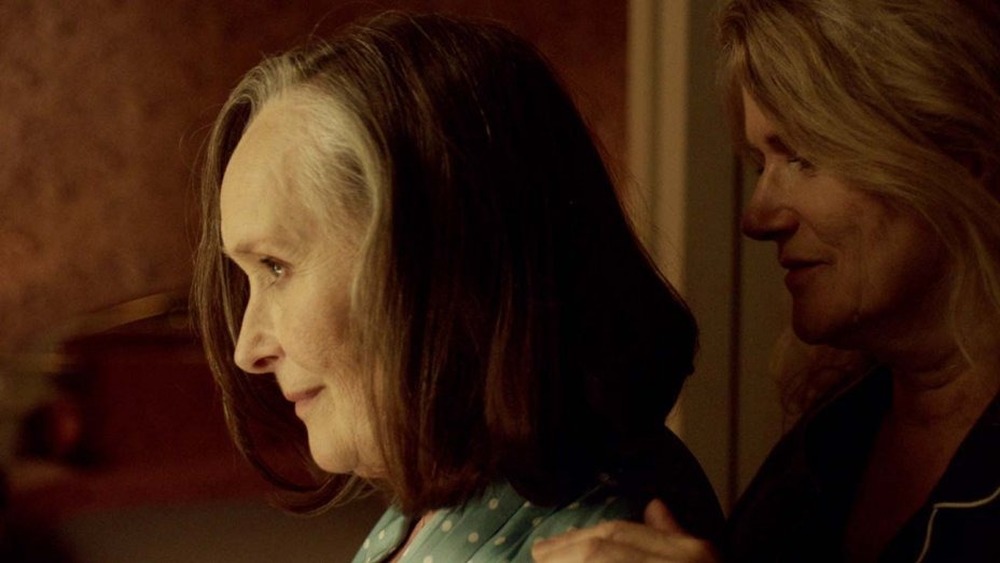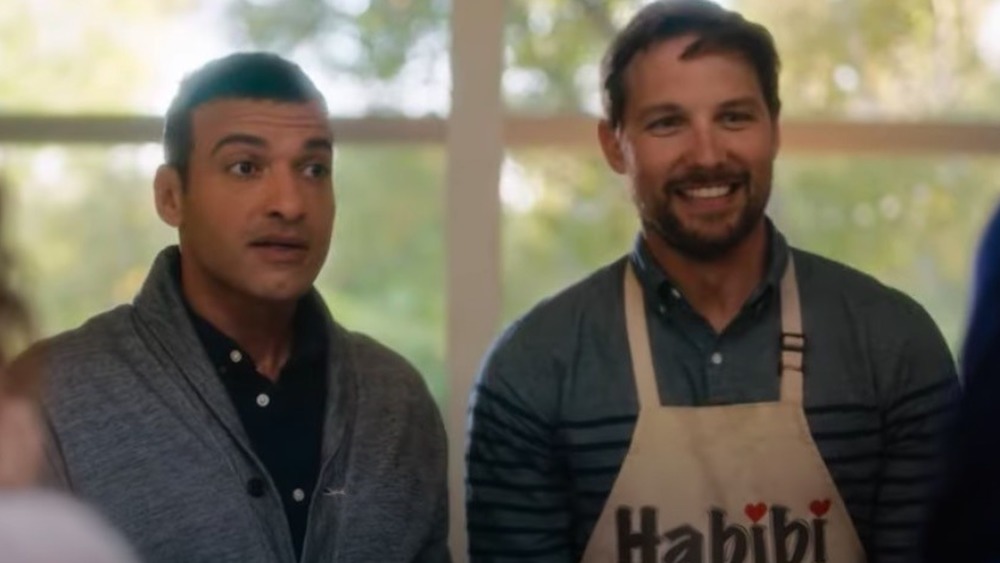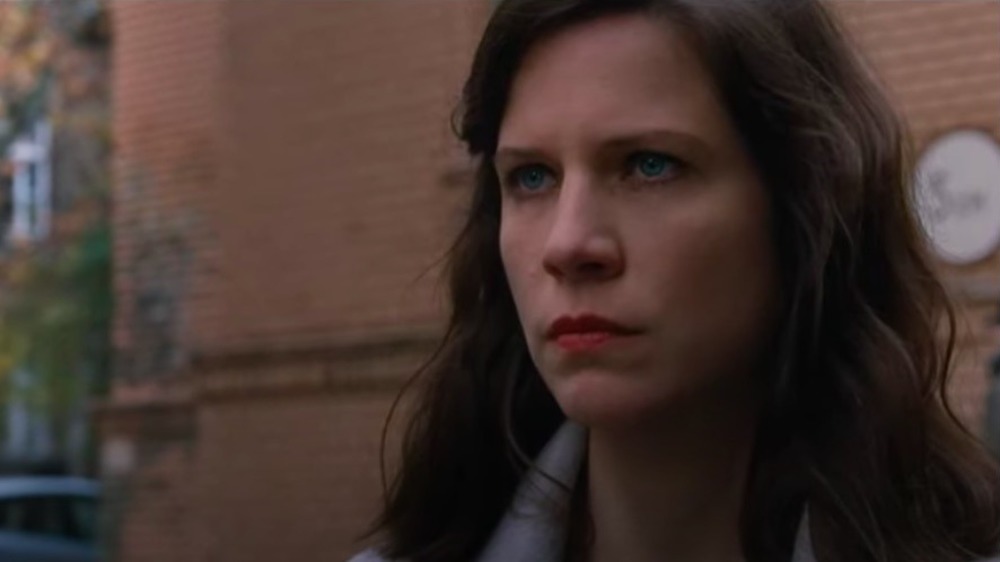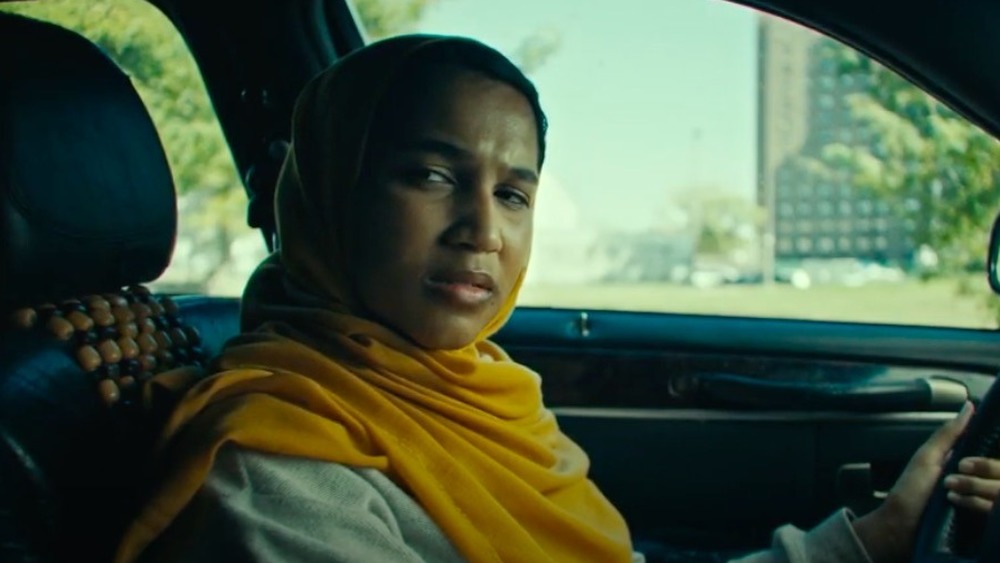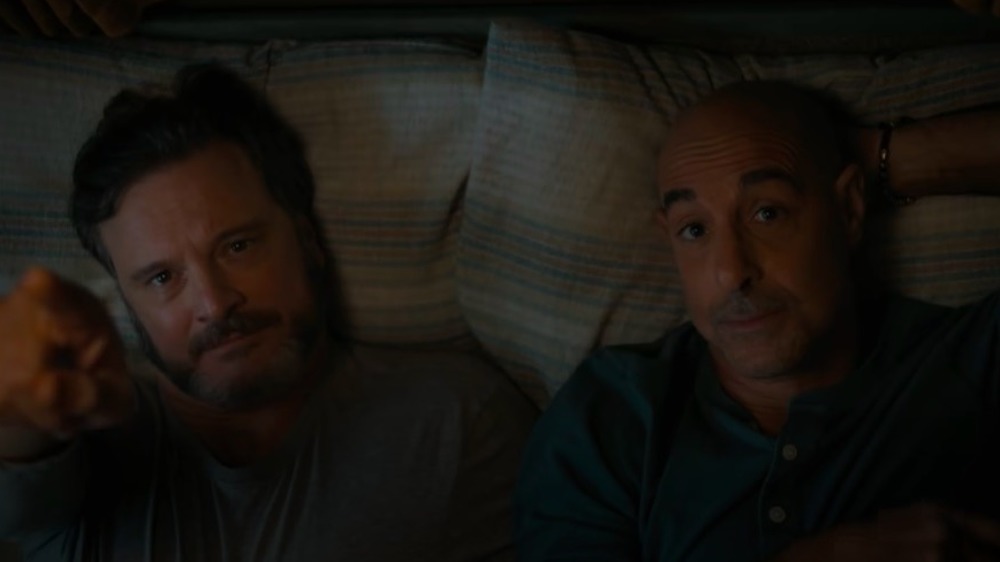The Best Romance Movies Of 2021
A good romance film is hard to find. The genre can easily lapse into being overly cliche or unrealistic, and, in the worst cases, unintentionally present toxic relationships. But some of the best romance films of all time — from Titanic and Brokeback Mountain to In the Mood for Love or Casablanca — show that the best of the genre can present a couple that viewers believe in and root for. Sometimes these couples end up together; other times, they can't overcome outside circumstances (like in each of the films listed above). A strong romance film will prevail in the minds of moviegoers whether there's a happy ending or a bittersweet one.
The first few months of 2021 have already seen a slew of romance films with the potential to become one of those long-remembered films of the genre. Here's a breakdown of some of the best romance films to be released this year.
To All the Boys: Always and Forever
Wrapping up the teen trilogy, To All the Boys: Always and Forever is based on the final book in Jenny Han's bestselling series Always and Forever, Lara Jean. The final installment came out in February of this year, three years after the first film, To All the Boys I've Loved Before, was first released on Netflix in 2018. After the first film set up the central romance between Lara Jean Covey (Lana Condor) and Peter Kavinsky (Noah Centineo), the third film sees them facing new hurdles as a couple. With high school nearing its end, they have to face the possibility of going to different colleges.
All three movies have been well received, with much of the praise pointing out how the characters and plot lines feel genuinely rooted in high school; for example, Lara Jean is open about her lack of dating experience, without its making her a prude. Further, the genuine chemistry between Condor and Centineo makes viewers enthusiastically root for the central couple.
This feel-good movie can be summed up with a line from Empire Magazine's review: "Lara Jean and Peter grow up convincingly in a well-handled conclusion to Netflix's hit trilogy, with a heart as generous as its charming central heroine."
Two of Us
Way beyond the years of high school romance, Two of Us, a French-language film directed by Filippo Meneghetti, focuses on two retired women who have secretly been in love for decades. The families of Nina (Barbara Sukowa) and Madeleine (Martine Chevallier) think they're merely neighbors, as they have the only two apartments on the top floor of their building — but they united long ago and are living happily together. When an unforeseen event occurs and one of their daughters begins to find out the truth about the couple, their happy life together is threatened.
Nina's and Madeleine's romance has drawn attention for its portrayal of a long-term, loving relationship. Globe and Mail called it "an incredible exploration of what it means to love and be loved in return." Critics have also focused on the two lead actresses, without whom the romance would not be believable or entrancing. The AV Club wrote, "It's an impressively confident debut, one that Sukowa and Chevallier bring to life with the verve of two actors in their prime."
Thoughtfully and sincerely presenting a narrative that infrequently gets a spotlight — two older women in love — makes Two of Us a rare gem.
Little Fish
Directed by Chad Hartigan, Little Fish takes place during a global pandemic — luckily, not the one we're currently experiencing, although the parallel does make this movie even more poignant. Instead, the setting of Little Fish is a near-future Seattle, where, like the rest of the world, residents are dealing with Neuroinflammatory Affliction, or NIA, a severe, widespread, and rapidly progressing condition that makes people's memories disappear. Committed couple Jude Williams (Jack O'Connell) and Emma Ryerson (Olivia Cooke, of Ready Player One fame) must grapple with NIA and the effects it has on their relationship, both past and present.
Despite its sci-fi premise, the film focuses less on the ways NIA affects society as a whole and more on how it affects just this one couple. This intimate perspective has been praised right and left, with critics crediting it with making this film worthwhile. Flickering Myth wrote in its review, "By keeping events intentionally intimate, Little Fish is able to ignore the extraneous and offer up something with emotional impact worthy of discussion."
Meanwhile, the lead actors have both received praise in their work of bringing this couple's story to life. Entertainment Weekly gave the film as a whole a stellar review, saying, "Maybe that's the greatest surprise of the movie, after all: Obsessed though it is with the past, throughout its whole runtime, the best part always lies ahead."
Breaking Fast
So far, romantic dramas are driving this list, but Breaking Fast is a romantic comedy worthy of its place here. This film directed by Mike Mosallam sets itself in West Hollywood, California. Our main character, Mo (Haaz Sleiman), a practicing Muslim, is still dealing with his last heartbreak when he meets Kal (Michael Cassidy), a white man with whom he seemingly has very little in common. Soon, Kal begins joining Mo in his nightly Iftars, the traditional meal that Muslims eat during Ramadan, and the two forge a close connection.
True to its genre, Breaking Fast sticks to familiar formulas that rom-com fans will recognize. Still, the inevitability of them getting together doesn't hurt the film. In terms of its place within the subgenre, the LA Times writes that "Mosallam's incisive and heartfelt, if occasionally on-the-nose, approach to matters of love, religion, family, and culture sets the film apart."
The review from RogerEbert.com is in agreement: "A movie that proves you don't have to reinvent the wheel to build a new road." After all, romantic comedies that don't center around heterosexual couples are still few and far between.
Preparations to Be Together for an Unknown Period of Time
Preparations to Be Together for an Unknown Period of Time, a Hungarian film by director Lili Horvát, focuses on Márta Vizy (Natasa Stork), a neurosurgeon returning to her home city of Budapest after working in the U.S. for two decades. Viewers quickly find out that while in the U.S., she hit it off with a fellow Hungarian doctor, János Drexler (Viktor Bodó), and they arranged to meet upon Márta's return — but János doesn't show up. When Márta confronts him about it at the hospital he works at, János claims to have never met Márta.
Merging a potential romance with a mystery heightens the emotional resonance of the film. Outlets such as the LA Times drew attention to Horvát's direction and her treatment of the central pair's high-stakes will-they-won't-they relationship, writing, "Horvát sends Márta and János through the motions of a stop-and-go dance, establishing their boundaries even as she slowly collapses the distance between them. In doing so, she slyly turns the conventions of the film noir inside out."
Critics have mixed feelings about the big reveal at the end, with some claiming it lacks satisfaction after all the buildup. Viewers should see for themselves if the ending lives up to its promise or not.
Funny Face
Tim Sutton's Funny Face introduces Zama (Dela Meskienyar), a young Muslim woman who runs away from her aunt and uncle's oppressive household without any idea of how to survive on her own. She soon meets Saul (Cosmo Jarvis), a young man whose favorite pastime entails donning a mask and exacting revenge on the real estate developer who evicted his grandparents and other residents of their building in order to build a luxury high rise. Instantly attracted to one another, they fall in love amid their individual struggles.
The general consensus is that while the social commentary the film is going for isn't as strong as intended, it succeeds in other aspects, including the relationship between the two leads. The Film Stage claims that what the film lacks in social commentary, "it makes up for in mood."
Screen International noted that Funny Face has many more moving parts than just its romance. Their review states, "The fact that this is not a picture which is easily pigeonholed [might seem] to be a stumbling block. Its unpredictable, enigmatic air does make the film interesting, however."
Supernova
Supernova, directed by Harry Macqueen, is another story of a couple facing the prospect of lost memories — this time from dementia, an affliction very much a part of reality. Sam (Colin Firth) and Tucker (Stanley Tucci), who have been romantic partners for 20 years, decide to travel across England to visit family, friends, and places of their past. Tucker has just been diagnosed with early onset dementia, making this time together that much more vital.
With a story so heavily focused on the story of one long-term couple, the film's success relies on the two lead actors. The performances of Firth and Tucci have indeed received ample praise. Rolling Stone wrote, "The film accordingly owes a great deal of its power to its actors, who are, of course, more than merely plausible as longtime partners, whose way through the small dramas of the everyday is the movie's real substance." Newshub claims the ticket price is worth it "for these two fine actors alone."
The script has also been lauded, with critics applauding its intimacy and authenticity. The San Jose Mercury News wrote, "Never does Supernova try to bite off more than it can handle as it winds toward an inevitable but beautifully rendered destination." If you want an intimate and poignant account of one couple's past and uncertain future, look no further than Supernova.
